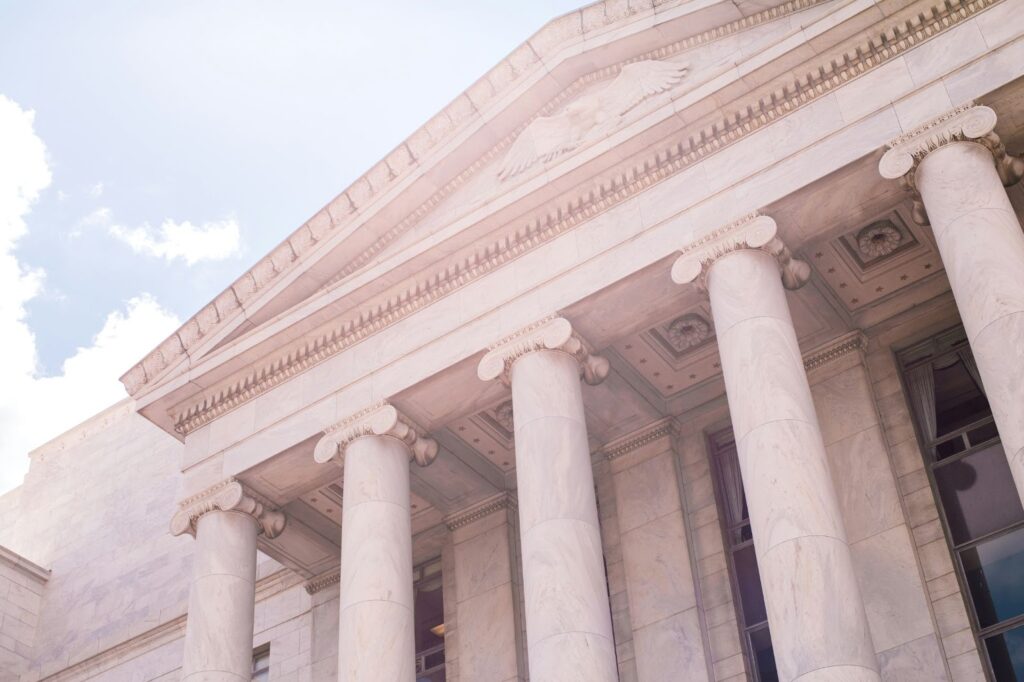
Earlier this week, discussions began in the House to address the need to replace the current legislation funding the federal government, which is set to expire on Sept. 30.
However, negotiations stalled as House Speaker Mike Johnson was unable to secure the necessary majority to advance his proposed funding bill to the Senate floor.
Republican members of the House to gain the narrow majority needed to pass the bill, CBS News reported, “…members of the Republican Party d[id]n’t like the short-term bills at all.”
The proposed bill only covers a six-month period, ending on March 28, after which a new spending package would have to be discussed.
Criticized by members of both parties, Senate Majority Leader Charles “Chuck” Schumer said, “The House Republicans’ [bill] is unserious and uncooked… It’s not serious for Republicans to say they want to kick the can down the road for six months…”
Schumer went on to detail several deficiencies in the bill, such as jeopardizing troop readiness, neglecting to extend border security programs, overlooking essential health program funding, and lacking a strategy for extending farm bill funding.
Democratic support for the bill was lacking due to Johnson’s decision to pair the government funding bill with the Safeguard American Voter Eligibility Act (SAVE Act), a move made under pressure from former President Donald Trump and the House Freedom Caucus.
Rep. Jennifer McClellan echoed House Democrats’ reasons for opposing the SAVE Act in an interview with The Hill.
“The devil in that bill is in the details. The SAVE Act puts barriers on American citizens voting and actually acts as a modern poll tax,” she said.
This would require new voters to submit “documentary proof of U.S. citizenship,” such as a passport or birth certificate, in order to register to vote.
This could lead to the disenfranchisement of the Black community, as explained by Obinna Oramalu, a sophomore and the education committee chair for the Howard University Coalition of Good Trouble, a voting rights organization based at Howard.
“Throughout American history, increased voting barriers have often led to the disenfranchisement of Black voters, and this trend is unlikely to change,” he said.
He elaborated on how the SAVE Act specifically would be harmful to the Black community, Oramalu said.
“Since citizenship is already required for federal voting and noncitizen voting is rare, this added security will likely further hinder voters, particularly in historically disenfranchised communities,” he said.
Despite no political association, Oramalu shares similar concerns with House Democrats, believing that the bill will only make the voter registration process more cumbersome.
Johnson’s bill alienated Democratic lawmakers, such as Schumer, who viewed the SAVE Act’s provisions as partisan, especially given the upcoming presidential election.
This further delayed Johnson’s efforts to secure the votes needed for passage.
Lydia Gebru, a senior international affairs major and economics minor, who works on Capitol Hill as a congressional intern, offered her thoughts on the matter.
“I think making [the SAVE Act] a concern while trying to set a budget for the fiscal year is a bit worrying,” she said.
Gebru goes on to explain why she believes pairing the SAVE Act with the funding bill is so detrimental.
“It causes Congress to try and accomplish political goals instead of keeping the government running,” she said.
Going on to explain the consequences of a government shutdown, Gebru said a government shutdown could prove detrimental long term,
“[While] benefits like social security and Medicare will continue, as they’re part of the law and don’t need annual approval… if the shutdown lasts, it could disrupt things like national parks, museums, passport processing, and visitor centers,” she said.
The effects of a government shutdown impact federal workers whose paychecks come from the funds Congress appropriates.
According to the Tax Policy Center (TPC), “Federal government shutdowns are disruptive and costly. Nearly 3 million federal employees won’t get paid until the federal government resumes normal operations.”
Keith Scales, a federal employee with 32 years of service, highlighted the impact of a government shutdown on federal workers.
“Just because someone is a federal worker doesn’t mean they aren’t living paycheck to paycheck,” he said.
He elaborated on a shutdown’s ripple effects on individuals and their families.
“It’s a snowball effect. First, the government shuts down, then government services, then you’re put on leave, and eventually, you can’t provide for your family,” Scales said.
Scales shared his thoughts on whether or not he believes those on Capitol Hill consider federal employees when working on spending bills.
“[The politicians] will go back to their home, to their families, they still have money…They’ll be prepared. But federal employees…not everyone is prepared,” he said.
Despite the threat of a potential shutdown, and opposition from both Democrats and some Senate Republicans, Johnson faces continued pressure from former President Trump to push the SAVE Act with the funding bill.
Trump said in an X post that congressional Republicans, “Should, in no way, shape, or form, go forward” with legislation funding the government unless it also includes something like the SAVE Act.
In response to a question about his plans to revise the plan over the weekend, Johnson said, “We are having family conversations within the Republican party…and I believe we’ll get there. That’s how the process works, and it takes a little more time.”
Copy edited by Camiryn Stepteau









